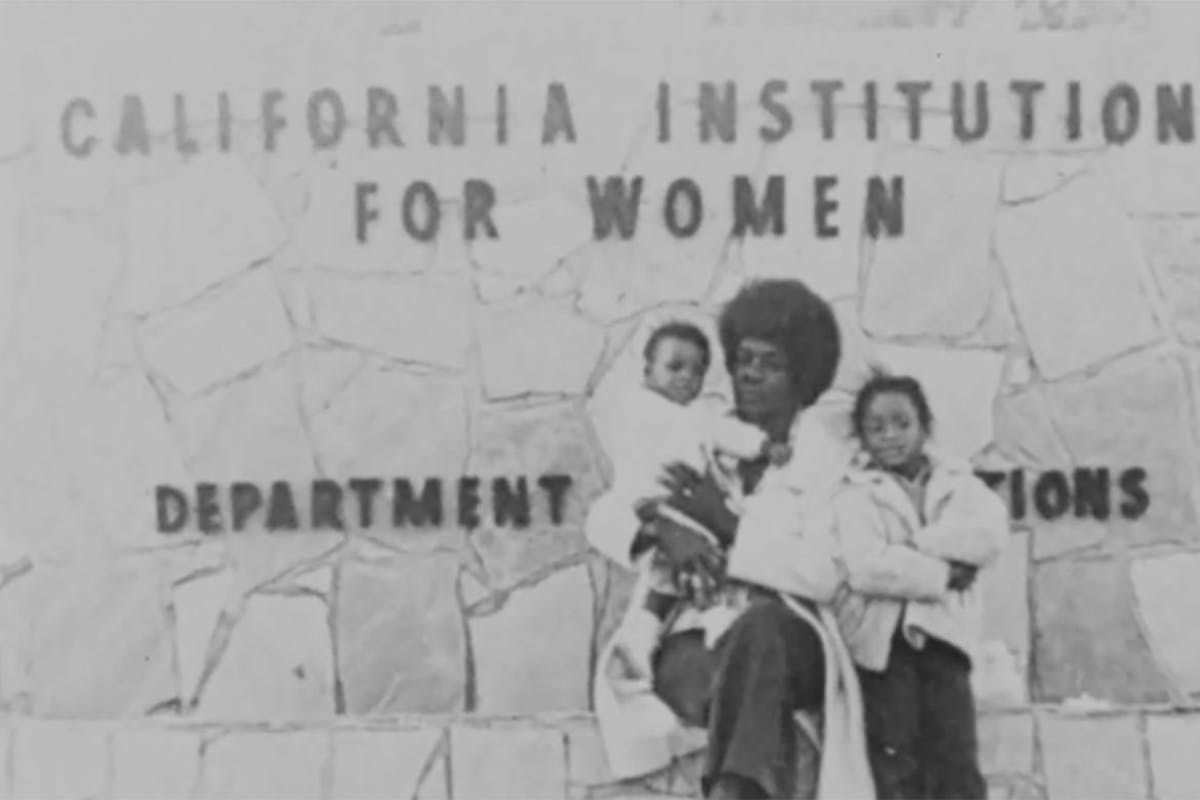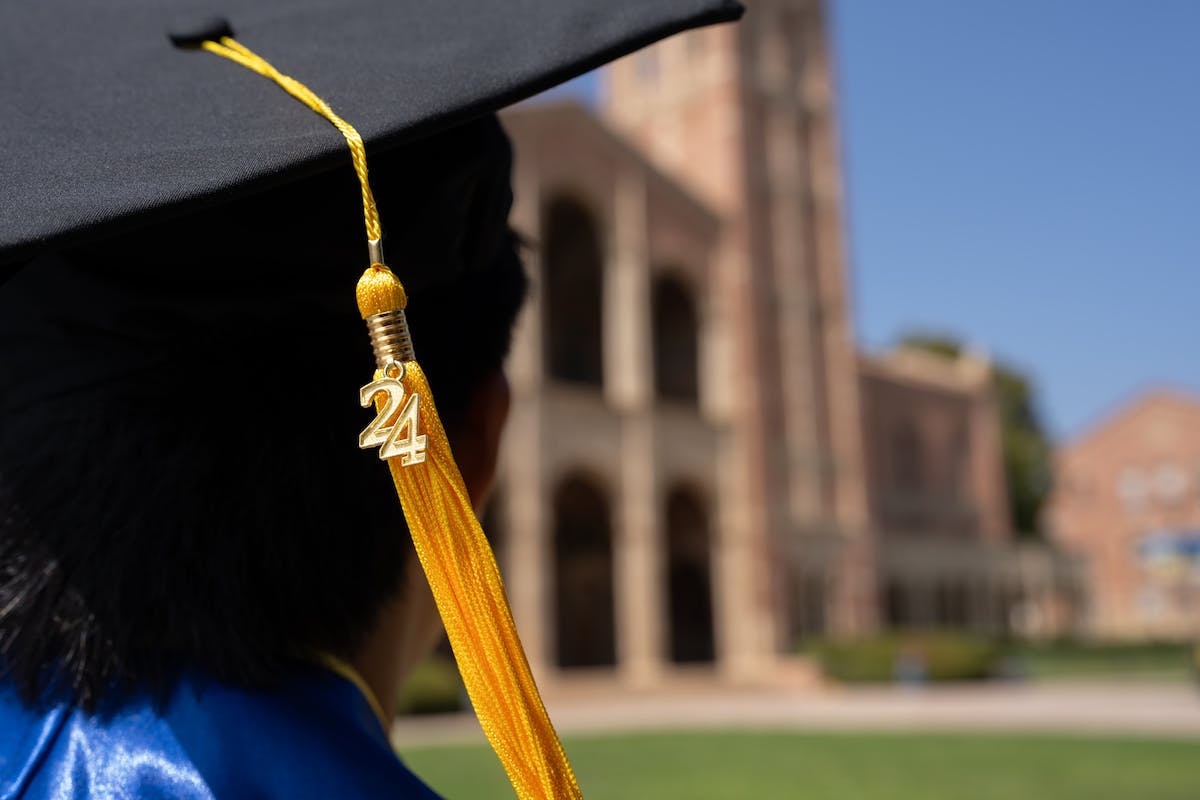Injustice remains: 48-year-old women’s prison documentary shows how little has changed

In 1974, when UCLA graduate film students Kathy Levitt, Michie Gleason and Christine Lesiak made their documentary “We’re Alive” featuring women incarcerated at the California Institution for Women, they harbored optimism in the power of the arts to spark change.
They hoped the film would be used in education, criminology, sociology and law classes to help change dehumanizing conditions. Alas, that didn’t happen.
Despite a decrease in crime in California since 1997, the state has built 20 more prisons and the incarcerated population has increased by 800%. The number of women who are incarcerated has jumped by 475%.
In the ensuing decades, the three students graduated and forged their careers, while their film was largely lost to time save for a few copies in motion picture archives. But on Jan. 28, a newly restored version of the film came home to UCLA for its premiere.
“We are grateful … especially to the women you will meet in the film today,” Levitt said in opening remarks. “Their words were powerful in 1974, and they continue to resonate today. The dedication of the film still holds. ‘To all the women before. To all the women after. From the women now.’”
The screening was presented by the UCLA Film & Television Archive in partnership with the UCLA Center for the Study of Women | Barbra Streisand Center. Following the film, the filmmakers were joined by activists who have spent time in the California Institution for Women to talk about the continuities between prison conditions in the 1970s and the current realities of surviving California’s carceral state.
Rescuing an ‘orphan’ film
Just being able to hold the event about the 48-year-old film was its own minor miracle involving an exhaustive search for any existing prints (thankfully the British Film Institute had two) and extensive restoration work. But more than that they needed to figure out who made the film, because the on-screen credits said only: “The Video Workshop of the California Institution for Women and the Women’s Film Workshop of the University of California Los Angeles.”
Fortunately, fate intervened. Kathy Levitt attended the 2022 UCLA Festival of Preservation, and while chatting with Archive motion picture curator Todd Wiener, Levitt mentioned that she had made “We’re Alive” along with two M.F.A. classmates.
“We were floored,” said May Hong HaDuong, director of the Archive, whose staff led the restoration of “We’re Alive.”
The filmmakers told the audience that they had left their names off because the film wasn’t about them — it was about these women’s stories. Another reason for the anonymity was to protect themselves and the women who participated. While the prison granted the students permission to lead the video workshop, they weren’t supposed to make a film that would be shown publicly.
During the 49-minute screening, the audience was riveted by the blunt and honest voices of the incarcerated women who shared a comprehensive and nuanced account of life in prison and their thoughts on the systemic injustices. They detailed frustrations over the lack of pay for their labor (7 to 10 cents an hour, if they got paid at all) and constant threats of being written up for any rule violation (including being unable to work because of illness). They shared their experiences of how societal racism and sexism factored into the incarceration of women.
“We pay our oppressor. We pay the wages,” one woman said in the film. “With us getting up every morning and going to work, it pays those people’s salary that’s locking us up.”
But they also spoke about their individual and collective strength to build community with one another, and the dignity of being allowed to wear their own clothes rather than prison outfits.
“I know within a prison setting, the unity is much stronger because you’re all in the same spot,” one of the other women in the film said. “When you’re in the free world, it seems to be a little bit more selfish. People just don’t seem to care that much for other people. And so I really wonder — who’s really in prison? Is it really us?”
Following the premiere of the restored film, Colby Lenz, deputy director of policy and community research at the Streisand Center, moderated a lively discussion. Joining Gleason, Lesiak and Levitt on the stage were Romarilyn Ralston and Susan Bustamante, members of the California Coalition for Women Prisoners, both of whom experienced incarceration at the California Institution for Women.
Early in the discussion, Lesiak spoke about what she learned from the women and what still sticks with her.
“The women in this film were a sisterhood of caring about one another that doesn’t exist in the outside world that’s so fragmented,” Lesiak said. “So who’s really in prison? That question just leaped out at me.”
As someone who had been incarcerated for more than 20 years, Ralston said she deeply admired how “We’re Alive” so honestly and completely portrayed the intimate connections among the women and how they were given the platform to talk about how poverty, substance abuse, racism and the courts contributed to these women ending up in prison.
“It wasn’t the society view of incarceration and people who become incarcerated,” said Ralston, executive director of Project Rebound at Cal State Fullerton, who received a full pardon from Gov. Gavin Newsom in 2022. “Those things were really important to me about this film, and it’s still present today with the women who are currently incarcerated.”
She continued: “The sweatshop of a sewing factory and what that does to the psyche and how that frames a person’s existence, we know that we’re more than those jobs. And they talked about that. I don’t want to be a janitor. I don’t want to be a cook. I don’t want to be a seamstress. I don’t want to do nails. I don’t want to do hair. There’s other things that I can do, and there’s other things that I have done.”
Bustamante, who was granted clemency by former California Gov. Jerry Brown and released from the California Institution for Women in 2018 after serving 31 years of a life-without-parole sentence, pointed out that the microscopic hourly wages are still the same.
“So nothing’s changed as far as that’s concerned,” she said. “There’s so much that’s even gotten worse through time.”
Bustamante, an original member of Convicted Women Against Abuse at the prison, is a longtime member of California Coalition for Women Prisoners. Bustamante is currently the reentry coach with Home Free, a program for survivors of domestic violence who are coming home after a long prison term.
Hard work remains for advocates
Among the changes for the worse that Bustamante pointed out — the increased use of isolation in prison, which prevents women from forming community. She said that reflects the overall trend toward emphasizing the punitive aspect of the carceral system.
“For a while, there were a couple of governors that said, ‘Lifers aren’t leaving except in pine boxes,’” said Bustamante, who has been very active in the movement to get California to repeal life without parole sentences. “Can you imagine what that makes you feel like?”
Even though so little has changed, Levitt said she remains transformed by the experience of making the film. “The women and their voices,” she said, “have stayed with me all these years.”
One nugget of good news shared by Bustamante: more than 200 people have had their life-without-parole sentences commuted and were released. “Zero recidivism. So nobody’s committing crime.”
The evening also included a short video by filmmaker Chisa Hughes, who is documenting current efforts to end life without parole in California. Though conditions have changed little in the prisons and have even deteriorated, the dedication of artist/activists has persisted as well.
“When the UCLA Film Archive restores and preserves this kind of material, they’re giving students today and students in the future, a great chance, really, to see politically engaged women,” Gleason said in remarks before the screening. “I think that’s amazing.”

